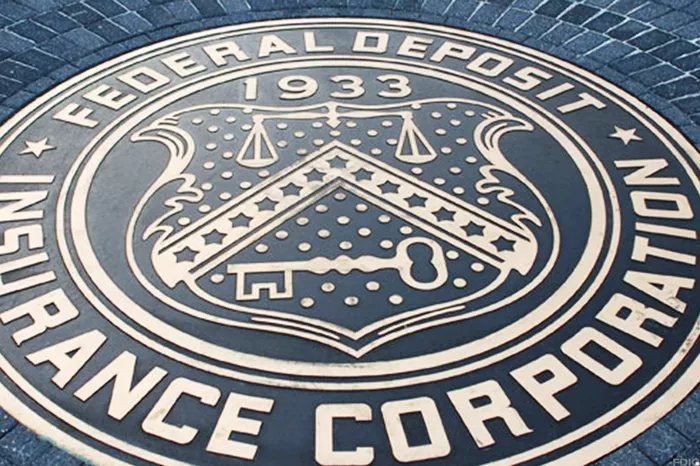In the realm of financial security, understanding what is and isn’t insured is crucial. The Federal Deposit Insurance Corporation (FDIC) stands as a pillar of protection for depositors, but there are limits to its coverage. While it provides a safety net for many banking products, there are notable exceptions. This article delves into three significant financial instruments not insured by the FDIC, offering insight into safeguarding your assets beyond traditional banking protections.
1. Investment Products
One of the key areas where FDIC insurance does not extend is to investment products. This category encompasses a wide range of financial instruments, including mutual funds, annuities, life insurance policies, stocks, and bonds. Unlike traditional bank deposits, these assets are subject to market fluctuations and carry inherent risks.
Investing in mutual funds exposes investors to the performance of the underlying securities held within the fund’s portfolio. While mutual funds offer diversification and professional management, they do not benefit from FDIC protection. Similarly, annuities, whether fixed or variable, are not insured by the FDIC. These financial products, often used for retirement planning, carry specific terms and conditions set forth by the issuing insurance company.
Life insurance policies, while providing a death benefit to beneficiaries, are also not covered by FDIC insurance. These policies are contracts between the insured individual and the insurance company, with the payout contingent upon the fulfillment of policy terms. Finally, investing in individual stocks and bonds carries market risk, and fluctuations in value are not protected by FDIC insurance.
2. Securities Offered by Brokerage Firms
Brokerage accounts serve as a gateway to the world of investing, allowing individuals to buy and sell securities such as stocks, bonds, and exchange-traded funds (ETFs). However, it’s essential to recognize that these accounts are distinct from traditional bank accounts and are not insured by the FDIC.
When you open a brokerage account, you’re venturing into the realm of the securities market, where returns are tied to the performance of underlying assets. While brokerage firms are regulated by the Securities and Exchange Commission (SEC) and the Financial Industry Regulatory Authority (FINRA), they do not fall under the purview of FDIC insurance.
In the event of a brokerage firm’s insolvency or other financial difficulties, assets held in brokerage accounts may be protected by the Securities Investor Protection Corporation (SIPC). SIPC coverage provides limited protection, primarily safeguarding against the loss of securities and cash held by the brokerage firm. However, SIPC coverage does not extend to losses resulting from changes in security prices or investment decisions.
3. Cryptocurrency Holdings
The emergence of cryptocurrencies has introduced a new frontier in finance, characterized by decentralized digital assets such as Bitcoin, Ethereum, and Litecoin. While these digital currencies offer exciting opportunities for investors, they also present unique challenges in terms of security and regulation.
Unlike traditional bank accounts, cryptocurrency holdings are not insured by the FDIC or any other government agency. The decentralized nature of cryptocurrencies means that individuals are solely responsible for safeguarding their digital assets. This responsibility includes storing private keys securely, utilizing reputable cryptocurrency exchanges, and implementing robust security measures to mitigate the risk of theft or hacking.
Additionally, the regulatory landscape surrounding cryptocurrencies remains fluid and varies significantly from country to country. While some jurisdictions have implemented regulations to govern the use and exchange of digital currencies, others have taken a more hands-off approach. As a result, investors should exercise caution and conduct thorough research before engaging in cryptocurrency transactions.
Conclusion
In an ever-evolving financial landscape, understanding the limitations of FDIC insurance is paramount to protecting your assets. While the FDIC provides invaluable coverage for traditional bank deposits, it’s essential to recognize that not all financial instruments fall under its umbrella of protection. Investment products, securities offered by brokerage firms, and cryptocurrency holdings are among the assets that are not insured by the FDIC.
To safeguard your finances effectively, diversification is key. By spreading your investments across a range of asset classes and adopting sound risk management strategies, you can mitigate potential losses and build a resilient financial portfolio. Additionally, staying informed about regulatory developments and emerging trends in finance will empower you to make informed decisions and navigate the complexities of the modern financial landscape with confidence.
FAQs
Q1: Are my mutual funds covered by FDIC insurance?
A1: No, mutual funds are not covered by FDIC insurance. Mutual funds are investment products that pool money from multiple investors to invest in a diversified portfolio of stocks, bonds, or other assets. While they offer potential returns, they also carry market risk, and fluctuations in value are not protected by FDIC insurance.
Q2: Do brokerage accounts receive FDIC insurance protection?
A2: No, brokerage accounts do not receive FDIC insurance protection. Brokerage accounts are distinct from traditional bank accounts and are used for buying and selling securities such as stocks, bonds, and ETFs. While brokerage firms are regulated by the SEC and FINRA, they are not insured by the FDIC. However, assets held in brokerage accounts may be protected by the SIPC against the loss of securities and cash held by the brokerage firm.
Q3: Are my cryptocurrency holdings insured by the FDIC?
A3: No, cryptocurrency holdings are not insured by the FDIC or any other government agency. Cryptocurrencies such as Bitcoin and Ethereum are decentralized digital assets that are not subject to traditional banking regulations. Investors are solely responsible for safeguarding their cryptocurrency holdings, including storing private keys securely and implementing robust security measures to mitigate the risk of theft or hacking.


